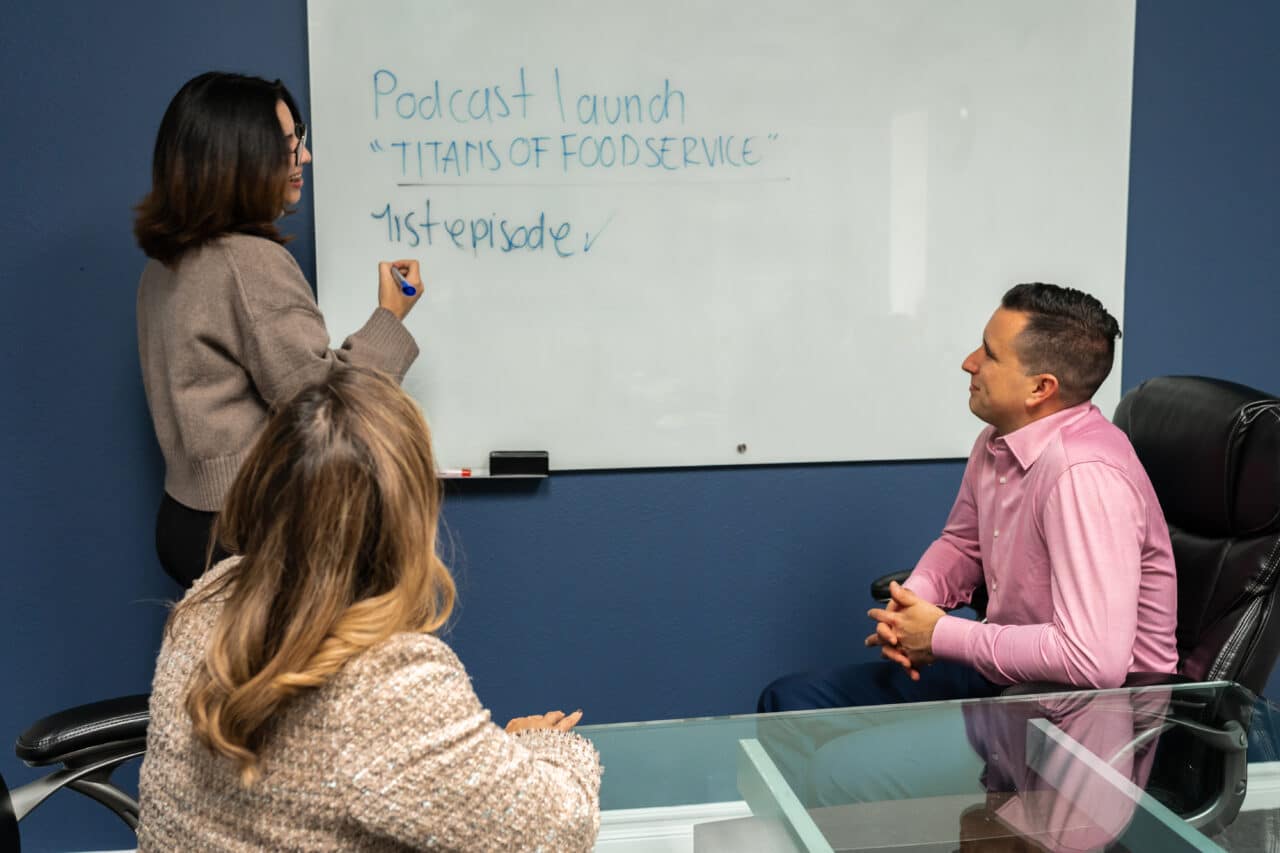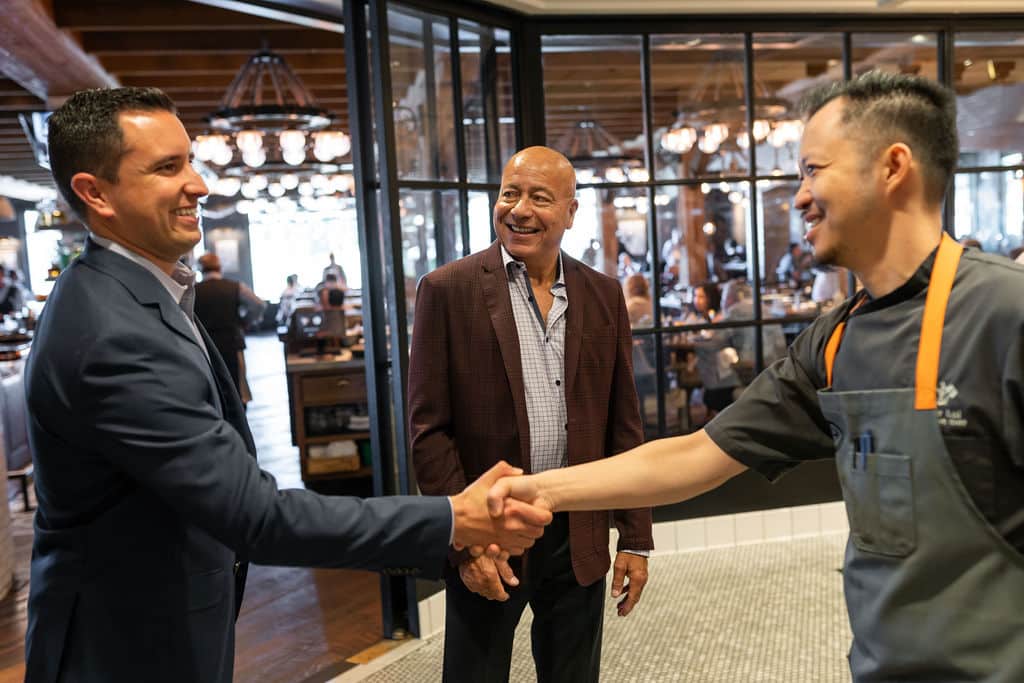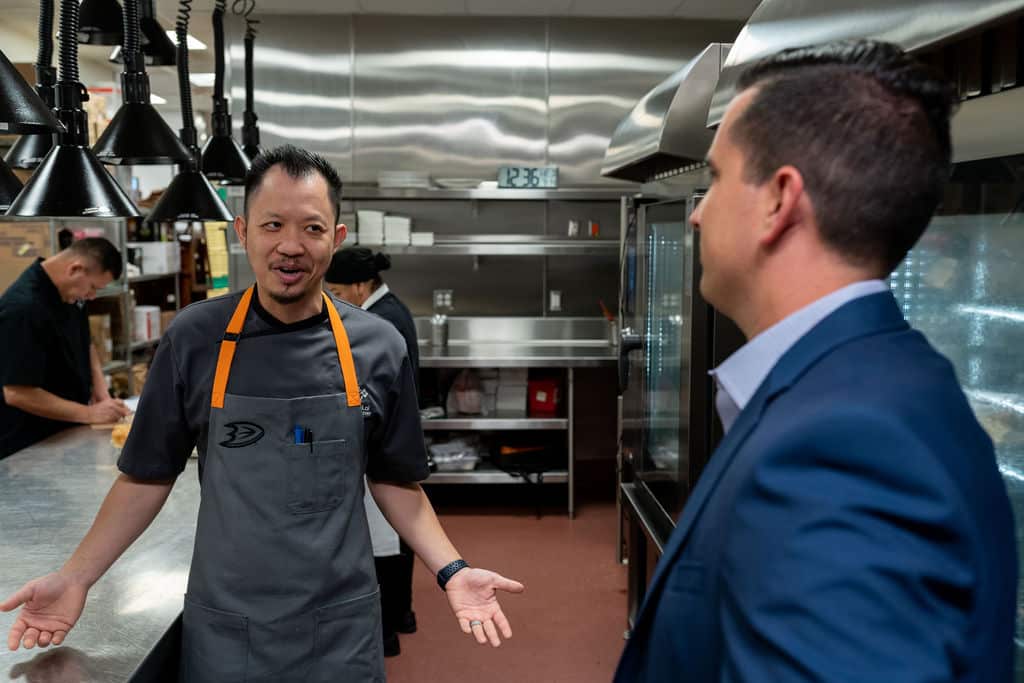Hiring a new foodservice broker takes time, patience and financial resources. This isn’t a decision that should be taken lightly. You must understand the capabilities of the broker you select and make sure you two are a fit. Making the wrong choice doesn’t benefit either party in the long run and will lead to disappointment.
So how do I know which broker to hire?
First, Determine Your “Why” for Hiring a Foodservice Broker
Before canvassing the country trying to find a broker in every market to support your initiatives, first map out, “why” you need them.
At Portillo Sales & Marketing, we have worked with manufactures of all different types over the past near decade. When we discuss a potential partnership with a manufacture, we commonly ask the question, “where are you today, and where do you want to go?” It gives the manufacture the opportunity to think about why hiring us or another broker is right for them.
We have come to find that the majority of those whom we ask this question to don’t know their answer to the question. And that is ok! We live busy lives, but it would serve you to take some time and write out your “why.”
There’s Not a One Size Fits All
Foodservice brokers come in all different shapes and sizes. That’s the beauty of making your decision on “who” to hire. There are big, national brokers all the way to smaller, solopreneur type brokers. It’s important to map out “what” you need the broker for.
For example, at Portillo, we represent brands that rely on us to be their sole sales & marketing team. They contract out with us and we handle everything from lead generation, to customer service, to sales planning and execution. On the flip side, we represent brands that hire us just for our customer service capabilities. They have limited resources and need us to be customer facing when problems, PO’s, etc. arise.
Figure out what you need, and communicate that to your brokers.
Conflicts, Conflicts, Conflicts…
Foodservice brokers can only represent a finite number of brands. A lot of that has to do with product overlap. In the broker world, there are: Hard Conflicts & Soft Conflicts.
Hard Conflict – Brokers cannot represent Pepsi & Coca-Cola simultaneously. The products are in the same exact category, being purchased by the same customer avatar, and they wouldn’t want customer conversions to the other nor want internal information being shared.
Soft Conflict – 2 manufactures with completely different core products that also produce a lesser priority product line that is similar.
Typically, if your main product category conflicts with a current client of the broker, they will need to decide if they should resign their current client to partner with you.
The Different Types of Foodservice Brokers
- National Brokers – Large, nationwide organizations that cover every market.
- Regional Brokers – Region specific organizations.
- Local Market Brokers – Organizations focused on one market only.
- Specialty Brokers – Segment or product-type specific organizations.
- Boutique Brokers – 1-2 person team in one market. May be a solopreneur.
Determining what scale your brand needs and resources you possess, can help steer which direction to take.
Figure Out Your Budget
Yes, there is a cost to working with brokers… How much you are willing to invest in a foodservice broker will depend on different factors for every company. However, if sales growth is important to you, there will be a cost to grow.
Brokers most commonly receive compensation in 2 forms:
- Commission – Paid on sales in their market(s).
- Retainer – Fixed monthly fee.
If you have underdeveloped sales, the retainer may be your best option until sales increase. The size of the retainer will be market specific. For example, the cost of doing business in San Francisco is significantly greater than Memphis.
Where to Find the Broker Right for You
Start with Google. Type in “Foodservice Broker” and then the “Area” and hit search.
From there, I would consult with 3 Manufacture colleagues who have experience working with brokers in your area(s) of need. Some questions I would ask:
- Do they achieve your objectives?
- How is their follow up?
- Are they Operator or Distributor centric?
- Is their team comfortable selling your products?
With these answers, you can get a decent understanding of what to expect.
Putting it All Together
Once you have your “Why,” “What,” and “Who,” you need to be prepared to ink the deal and get your brokers set up. This process will require:
- Collecting the broker’s W-9 Form
- Presenting a Contract – This is typically put together by you as the manufacture, but brokers will have templates they can share with you too
- Set an Onboarding Date to train the broker
- Establish Mutual Goals
- Give them all the tools they need to be successful
Hiring a broker can be challenging, but when you find the right one(s) for you, they can make a significant impact on your business!
If you found this article interesting, it would be so much to me if you would share it on your LinkedIn page. The more we help one another in the foodservice industry, the more we grow together.
The very best,
Nick Portillo
P.S. in case you missed it, make sure to check out my last post: What I Wish I Knew on My First Day in Foodservice
Related Posts
-
March 10, 2023
Innovative Marketing Strategies – Booths That Caught My Eye at Expo West
As a player in the foodservice industry, attending Expo West in Anaheim is a refreshing change of...
Read More -
December 13, 2022
How to Manage a Food Broker: 3 Tips Every Manufacturer Should Do
As a foodservice broker, our manufacture clients occasionally ask, “What do other manufacturers do that...
Read More -
November 30, 2022
What Does a Food Broker Do?
Food Brokers are multi-line reps that are contracted out by foodservice manufactures to be their...
Read More





